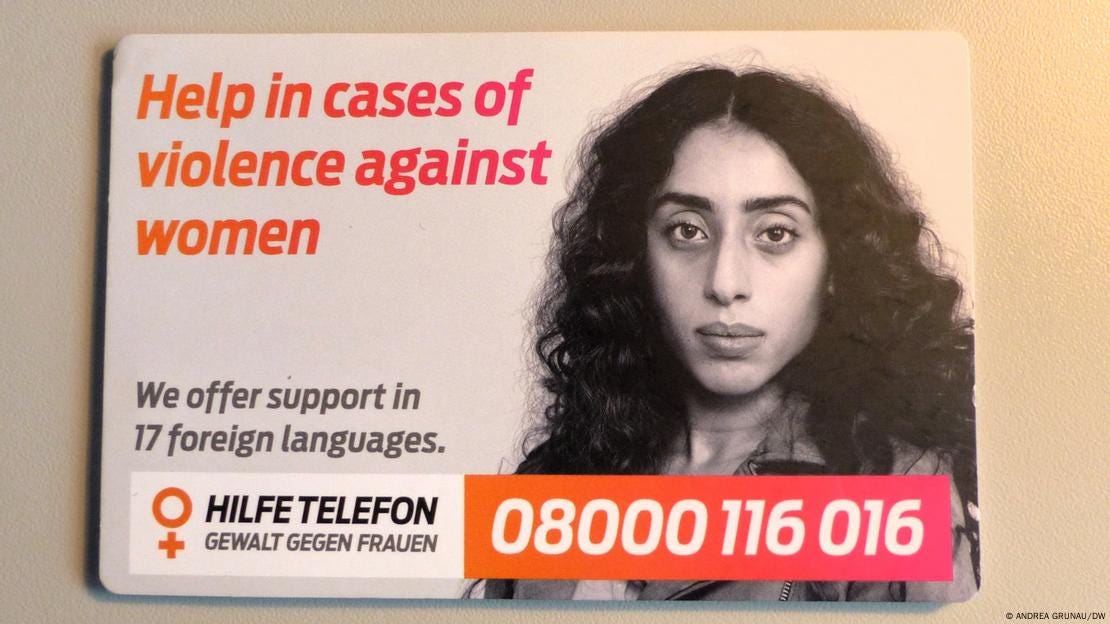Femicide in Germany: A Woman is Killed Every Two Days by a Partner
In Germany, nearly every other day, a woman loses her life at the hands of her partner or ex-partner. Recent data from the Federal Criminal Police Office show that 155 women were killed by their partners or former partners in 2023 alone. This alarming trend has led activists to call on the government for stronger measures to prevent violence against women.
✨IWB is an independent project and we need your support to keep running!✨
Support our work and get benefits back:
One case that shocked the nation involved a woman with young children who, despite obtaining multiple restraining orders, was fatally ambushed by her husband after a prolonged period of stalking. Another survivor, Diana B. (name changed for privacy), shared her story with DW, revealing years of abuse and death threats from her husband. Because no prior complaints were filed, the courts treated him as a first-time offender, resulting in a suspended sentence. Diana has since relocated and started a new life with her children, but hundreds of women each year are not as fortunate.
Inadequate Response and Shelter Space
Despite public statements from German Interior Minister Nancy Faeser, who emphasizes the need to classify such acts as femicides rather than “relationship tragedies,” and Family Minister Lisa Paus, who voices similar concerns, legislative progress remains slow. In response to a 2021 coalition pledge, Paus drafted an anti-domestic violence law, but it is stalled amid ministry negotiations. Advocates warn that without this law, women will continue to face life-threatening situations without adequate protection.
Germany’s refuge facilities are also critically under-resourced. The Council of Europe’s Istanbul Convention recommends significantly more support for domestic violence victims, estimating a shortfall of 14,000 shelter spaces in Germany. Koblenz, for example, should ideally offer 11-12 protected rooms but has only seven, leading many women to be turned away or relocated hundreds of kilometers away. For women who don't qualify for social benefits, the cost of staying in a shelter often forces them to return to abusive situations.
Challenges for Immigrant Women and their Children
The impact is even greater for immigrant women, who often lack local support networks, language proficiency, and legal awareness. As women are most vulnerable after separation or in cases where threats have been made, high-risk situations are commonplace. Children who witness violence are also severely impacted; experts caution that exposure to domestic violence can perpetuate cycles of abuse across generations.
Towards a Future Free of Violence
Many activists, survivors, and shelter workers are pushing for comprehensive changes, including a legal “right to protection and legal advice” for all victims. This would not only guarantee enough shelter spaces but also improve access to essential services, regardless of a victim’s financial background.
The road to safety and peace is still long and fraught with bureaucratic challenges, but advocates insist that no woman should have to endure violence in silence. As one survivor put it, staying in a violent relationship for the sake of children only hurts them in the long run. The hope is for a Germany where support for women at risk of violence is both readily available and wholly effective.
What do you think? We want to hear your opinion!
Be part of the conversation inside the IWB community. Share your opinions and check out the insights of other women in Berlin.
✨ Support International Women in Berlin✨
Help us empower women in Berlin! With every €1 donation, you say a heartfelt 'thank you' to our independent project dedicated to helping women thrive in Berlin. For €5 or €10, enjoy exclusive perks and access to IWB events. Your contribution is vital for us to continue creating a supportive community. 💌 Donate Now – Let's succeed together in Berlin!





